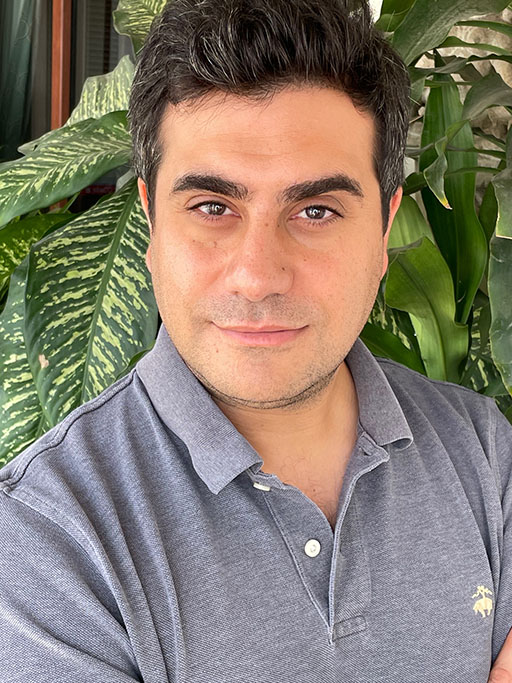Are Voice AI Companies Aiming to Disrupt the Indian Healthcare System


With the Indian healthcare infrastructure embracing digitization and opening up to newer innovations, patient care is all set to receive a much-needed shot in the arm. Rustom, Lawyer, Co-Founder and CEO, Augnito, shares how voice AI plays a role in enhancing the Indian healthcare system.


In 2020-21, India spent only 1.8% of its GDP on healthcare. It’s an alarming figure in light of the ongoing Covid-19 pandemic, especially when the patient is at the heart of healthcare.
To that effect, the World Medical Innovation Forum says that Voice AI is one of the top 12 disruptive healthcare AI technologies. Healthcare professionals spend approximately one-third of their time on paperwork. Through speech recognition and natural language processing, Voice AI has the ability to reduce the time spent by clinicians to review documentation and save them more than two hours every day, shows a recent white paper by Augnito, India’s 1st medical speech to text tool for the healthcare Industry.
While Voice AI can be leveraged to aid diagnosis, predict propensities and more, the essence of digitization of the healthcare systems lies in the adoption of the Electronic Medical Records (EMR). This will pave the way towards efficient Universal Health Coverage (UHC) in the future, whether it’s improving patient coordination, participation, research, or reduction in healthcare expenses.
HOW VOICE AI IS ENHANCING THE INDIAN HEALTHCARE SYSTEM
Essentially, EMRs are comprehensive digitally stored healthcare information to support continuity of care, education, and research. This could range from observations, test results, medical images, treatments, therapies, drugs administered, patient identifying information, legal permissions, and more. The Indian Government’s Ministry of Health & Family Welfare first released EMR standards in September 2013 and launched the UHC scheme, known as the Ayushman Bharat Yojana in 2018, mandating digitization of health data for the beneficiaries. Unfortunately, its universal implementation has yet a long way to go but here is how Voice AI can strongly enhance the Indian healthcare system.
1. COST/BENEFIT ANALYSIS
Indian private hospitals tend to spend only 2.5% of the total hospital budget on Information Technology (IT). The budget is starkly lower when compared to government hospitals. Consequently, healthcare professionals are engaged in tedious repetitive tasks such as typing out reports or discharge summaries that could otherwise be utilized to improve the care provided to patients. By eliminating the need for manual scribing, the dependence on clinical comprehension abilities of external manual transcribers is drastically reduced, saving time and money to be put towards the most important part of healthcare: patients.
2. ACCURACY AND EFFICIENCY
In a country that supports more languages than most, communication barriers experienced by patients and staff can complicate an efficient EMR adoption. But medical data is required to be documented in English. Voice AI-based technologies like Augnito offer users ease of access and simple navigation without the risk of human error and misinterpreted information. Without the need for a voice profile training and 99% speech accuracy out of the box, EMRs recorded through Augnito’s Voice AI systems ensure the highest level of data integrity, ergo improving data quality for analytics, audits, and insurance claims.
3. EASY INTEGRATION
Due to the overarching need of an efficient streamlined healthcare system, developers have deliberately focused on Voice AI to work flawlessly with widely used processors that can directly integrate with existing technology at hospitals and healthcare centres. This also welcomes independent practitioners into the fold, widening the scope of enhanced access to healthcare all over the country. The resultant standardization of service can effectively raise prevailing medical care for all patients, even transcending socio-economic boundaries.
4. IMPROVED PATIENT CARE
A robust integration of Voice AI backed systems can accelerate clinical operational efficiency allowing for a bigger patient pool. Real-time reporting enables quicker diagnosis, clinical processes, and even patient discharge. The resultant collation of big data across the board greatly aids in research analytics, ensuring a continuously evolving healthcare ecosphere.
There you have it in a brief nutshell. When it comes to AI-backed medical solutions, India is still at a nascent stage. However, it’s already evident that the intersection of technology with healthcare is not a professional threat but an aid for healthcare providers across all specialties.
Disclaimer: The article is authored by Rustom, Lawyer, Co-Founder and CEO, Augnito. The views and opinions expressed in this article are those of the author’s and do not represent those of PEAKLIFE.
More from our site
Recent Posts
The Soul of the Caribbean Beckons Indian Travellers
Jamaica Tourist Board hosted an exclusive networking evening for travel trade and media in New Delhi
Jamaica Tourist Board hosted an exclusive networking evening for travel trade and media in New…
Explore April’s Freshest Offerings in Luxury and Innovation
Explore the latest in lifestyle, luxury, and design with this week’s hottest debuts
Explore the latest in lifestyle, luxury, and design with this week’s hottest debuts
Where to Sip the Best Whisky Cocktails in India
On International Whisky day, head to these restaurants to sip the finest whisky cocktails
On International Whisky day, head to these restaurants to sip the finest whisky cocktails
The New Defender OCTA: Epitome of Power, Luxury and Performance
New Defender OCTA is the most dynamically accomplished Defender ever created, with unmatched breadth of capability and performance both on- and off-road
New Defender OCTA is the most dynamically accomplished Defender ever created, with unmatched breadth of…
Shaping Tomorrow’s Golf Champions With Leela Palace Bengaluru
The 3rd edition of The Leela Golf Tournament celebrated young talent and brought together skill, precision and camaraderie!
The 3rd edition of The Leela Golf Tournament celebrated young talent and brought together skill,…
The Duo Behind Late Checkout, Redefines Hospitality
In conversation with the founders of Pawan Shahri and Nikita Harisinghani, the duo behind Chrome Hospitality Asia
In conversation with the founders of Pawan Shahri and Nikita Harisinghani, the duo behind Chrome…

